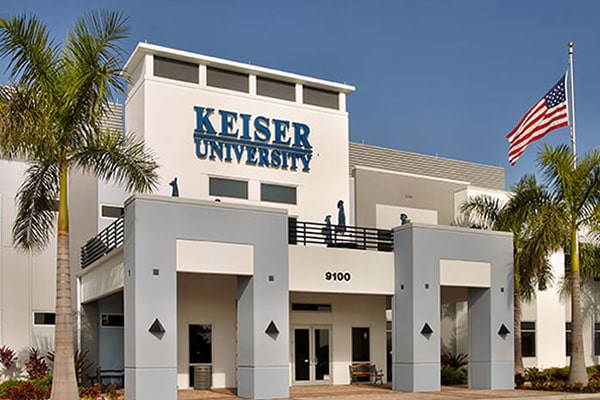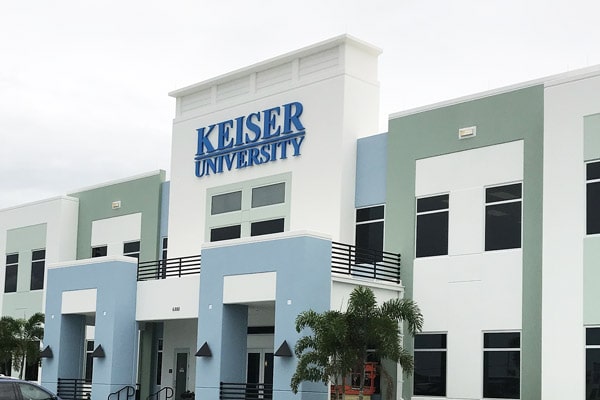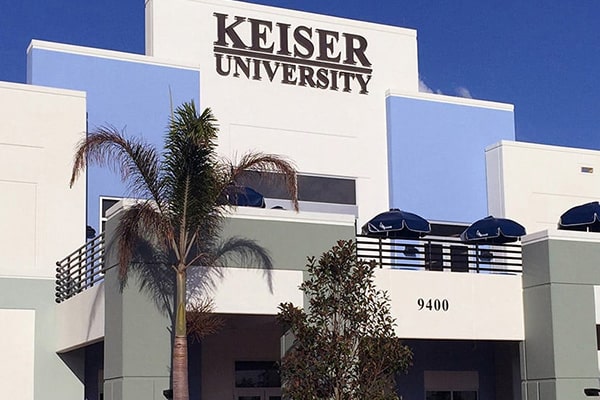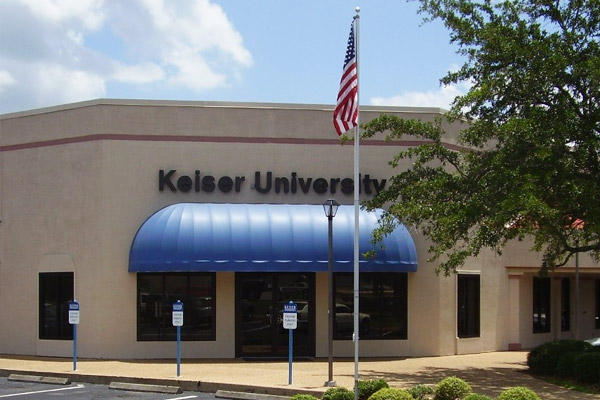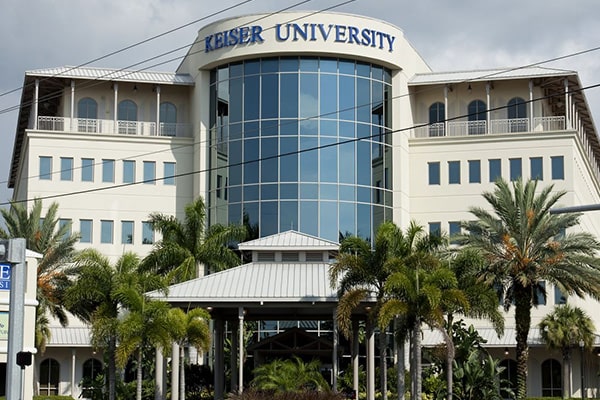Nursing, BSN (RN to BSN)
Keiser University’s Bachelor of Science degree in Nursing (RN to BSN) is a degree completion program for registered nurses. This program emphasizes critical thinking, leadership, management, research, physical assessment, and health promotion across a variety of community-based healthcare settings. The curriculum accentuates cultural, political, economic, and social issues that affect patients and influence healthcare delivery through both online classroom and clinical components. The RN to BSN Curriculum is designed to be completed in as few as 12 months.
The RN to BSN program is designed to support the continued growth of practicing nurses by deepening their understanding of healthcare systems, expanding their leadership capacity, and enhancing their ability to influence patient outcomes. The curriculum encourages reflective practice, professional engagement, and lifelong learning as essential components of advancing within the nursing profession.
Prospective students interested in pursuing a BSN degree at Keiser University should consult the degree accreditation statement in the Accreditation section of this website.
Program Mission
The College of Nursing at Keiser University utilizes a “students first” philosophy to increase access to nursing education for a diverse student body at the undergraduate and graduate level and prepares students to provide holistic nursing care to improve individual, community, and global health outcomes.
Programmatic Student Learning Outcomes
Keiser University’s Bachelor of Science in Nursing program prepares students to deliver evidence-based, collaborative care to individuals, families, and communities across a variety of healthcare settings. The Programmatic Student Learning Outcomes represent a culmination of measurable competencies that support graduate readiness to practice effectively within today’s complex healthcare environment.
The Programmatic Student Learning Outcomes are:
CARE COORDINATION: Utilizes effective leadership, communication and collaboration for shared decision making with the patient and multidisciplinary healthcare providers in the deliberate organization, design and management of safe, high quality and high value care for culturally and spiritually diverse patients across the continuum of healthcare environments.
RESEARCH AND TRANSLATION: Engages in scientific inquiry with a spirit of creativity, utilizes evidence-based nursing knowledge, and translates data and information into nursing practice to address common clinical scenarios.
INFORMATION MANAGEMENT: Utilizes patient care technology and information systems to communicate, collaborate and support clinical decision-making in the delivery of quality patient care in a variety of healthcare settings.
ADVOCACY AND POLICY: Integrates professional nursing values, ethical, legal, and theoretical practice frameworks fundamental to the discipline of nursing to influence health promotion, disease prevention, healthcare policy, and regulation across the lifespan and practice environments.
Prerequisites for Major Courses
- Graduation from either an associate degree nursing program, a diploma nursing program, or an awarded registered nursing license in the state of residence.
- Proof of current, active, and non-restricted professional licensure as a registered nurse in the United States. Students in an RN to BSN on campus hybrid program must hold a Florida RN license.
Program Outline
This degree completion program for registered nurses emphasizes critical thinking, leadership, management, research, physical assessment, and health prevention and promotion across a variety of healthcare settings. The curriculum accentuates cultural, political, economic, and social issues that affect patients and influence healthcare delivery through online and/or face-to-face classroom (depending on campus) and clinical components. Students must complete all courses with a grade of “C” or higher to proceed successfully through the program. This program is designed for graduates of associate degree programs in nursing, nursing diploma programs, international, or associate degrees in applied science in nursing, who have also satisfied the above prerequisites for major courses. To receive a Bachelor of Science degree in Nursing, students must complete an additional 60 credit hours, inclusive of courses described below. The length of this program is approximately 12 months (this will vary if a student transfers in credits). A combined total of 120 credit hours is required for the degree. Students applying to the MSN program should take NUR510 Health Promotion and Disease Prevention as an elective in their last term. This will result in a total of 123 credit hours required for the degree.
Lower Division Courses
- Previous General Education Courses (36.0 credit hours)
- Previous Nursing Degree Courses (42.0 credit courses)
Upper Division Courses
| General Education Requirements (6.0 credit hours) Students must complete 6 credit hours of upper division general education courses as part of the program of study. |
|
|---|---|
| Professional Writing | 3.0 credit hours |
| Ideas in Humanities | 3.0 credit hours |
| Upper Division Nursing Major Courses (36.0 credit hours) | |
|---|---|
| Nursing Role and Scope | 3.0 credit hours |
| Global Trends in Nursing Practice | 4.0 credit hours |
| Public Policy and Risk Management | 3.0 credit hours |
| Nursing Research | 3.0 credit hours |
| Nursing Informatics | 3.0 credit hours |
| Special Topics in Professional Nursing Practice I | 3.0 credit hours |
| Special Topics in Professional Nursing Practice II | 3.0 credit hours |
| Transition to Professional Nursing | 3.0 credit hours |
| Community Nursing I | 4.0 credit hours |
| Community Nursing II | 4.0 credit hours |
| Nursing Leadership in Systems of Healthcare | 3.0 credit hours |
Keiser University Nursing Program Testimonials
Hear directly from Nursing students about how Keiser University prepared them for successful careers in nursing.










